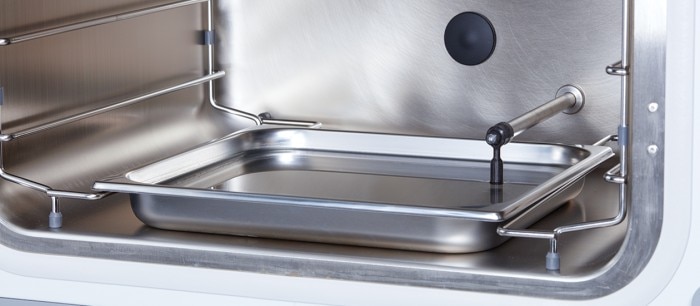MENU
IT | EUR
-
-
-
-
- Forum Labo 2025
- Advanced Therapies Week (ATW) 2025
- SLAS Europe 2025
- Bioprocessing Summit Europe 2025
- Medlab Middle East 2025
- SLAS International 2025
- Biologics World Nordics 2025
- ASIA LABEX: The Lab Show 2025
- BioProcess International Europe 2025
- ISEV 2025
- Future Labs Live 2025
- DataHow Symposium 2025
- Cell 2025
- ASIA LABEX: The Lab Show 2025
- LabDays 2025
- Stem Cell Community Day 2025
- Nordic Life Science Days 2025
- JASIS 2025
-
-
-
-
- Forum Labo 2025
- Advanced Therapies Week (ATW) 2025
- SLAS Europe 2025
- Bioprocessing Summit Europe 2025
- Medlab Middle East 2025
- SLAS International 2025
- Biologics World Nordics 2025
- ASIA LABEX: The Lab Show 2025
- BioProcess International Europe 2025
- ISEV 2025
- Future Labs Live 2025
- DataHow Symposium 2025
- Cell 2025
- ASIA LABEX: The Lab Show 2025
- LabDays 2025
- Stem Cell Community Day 2025
- Nordic Life Science Days 2025
- JASIS 2025
IT | EUR
-
- Tutte le centrifughe
- Centrifughe da banco
- Centrifughe da pavimento
- Centrifughe refrigerate
- Microcentrifughe
- Centrifughe multiuso
- Centrifughe ad alta velocità
- Ultracentrifughe
- Concentratore
- Prodotti IVD
- High-Speed and Ultracentrifuge Consumables
- Provette per centrifughe
- Piastre per centrifughe
- Gestione degli apparecchi
- Gestione di campioni e informazioni
-
- Tutte le pipette, i dispenser e i sistemi automatizzati per la manipolazione dei liquidi
- Pipette meccaniche
- Pipette elettroniche
- Pipette multicanale
- Pipette e dispenser a spostamento positivo
- Puntali per pipette
- Dispenser per flaconi
- Controller per pipette
- Accessori per dispenser e pipette
- Pipettaggio automatico
- Consumabili per l'automazione
- Accessori per l'automazione
- Servizi di assistenza per dispenser e pipette
Sorry, we couldn't find anything on our website containing your search term.
Sorry, we couldn't find anything on our website containing your search term.

Cell Culture FAQ: How often should I refill and replace the water in the humidity tray of the CO2 incubator?
Lab Academy
- Biologia cellulare
- Coltura cellulare
- Routine di laboratorio
- Incubatori a CO2
- FAQ
This article was published first in "Inside Cell Culture" , the monthly newsletter for cell culture professionals. Find more interesting articles about CO2 incubators on our page "FAQs and material on CO2 incubators" .
Answer by Dr. Jessica Wagener, Application Specialist Cell Handling at Eppendorf
In most CO2 incubators a simple tray filled with sterile distilled water is placed in the incubator to generate a highly humid atmosphere inside. This atmosphere prevents the cultured cells from drying out over time. Unfortunately, a humid atmosphere is also favored by unwanted microbial contaminants. However, adding biocides to the water of the humidity tray should be considered carefully. One aspect is the corrosive potential of some antimicrobial reagents, which can damage the stainless-steel of the humidity tray. Another risk is posed by volatile compounds in these reagents that might influence cell growth after evaporating from the humidity tray.
Independently of the use of antimicrobial reagents, the water in the humidity tray should be monitored closely to avoid undetected contamination growth or accumulation of harmful substances. Instead of only refilling the water it is advisable to completely replace the water regularly and clean the humidity tray (e.g. with 70% Ethanol) before adding fresh water. Our general recommendation is to replace the water in the CO2 incubator once a week.
Answer by Dr. Jessica Wagener, Application Specialist Cell Handling at Eppendorf
In most CO2 incubators a simple tray filled with sterile distilled water is placed in the incubator to generate a highly humid atmosphere inside. This atmosphere prevents the cultured cells from drying out over time. Unfortunately, a humid atmosphere is also favored by unwanted microbial contaminants. However, adding biocides to the water of the humidity tray should be considered carefully. One aspect is the corrosive potential of some antimicrobial reagents, which can damage the stainless-steel of the humidity tray. Another risk is posed by volatile compounds in these reagents that might influence cell growth after evaporating from the humidity tray.
Independently of the use of antimicrobial reagents, the water in the humidity tray should be monitored closely to avoid undetected contamination growth or accumulation of harmful substances. Instead of only refilling the water it is advisable to completely replace the water regularly and clean the humidity tray (e.g. with 70% Ethanol) before adding fresh water. Our general recommendation is to replace the water in the CO2 incubator once a week.
Approfondisci

